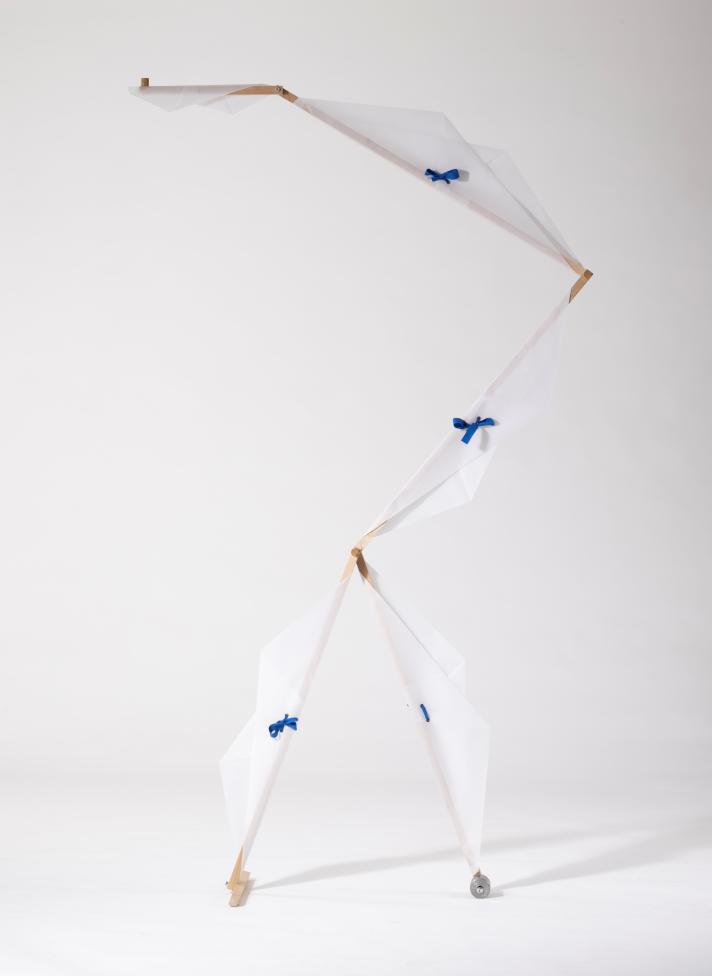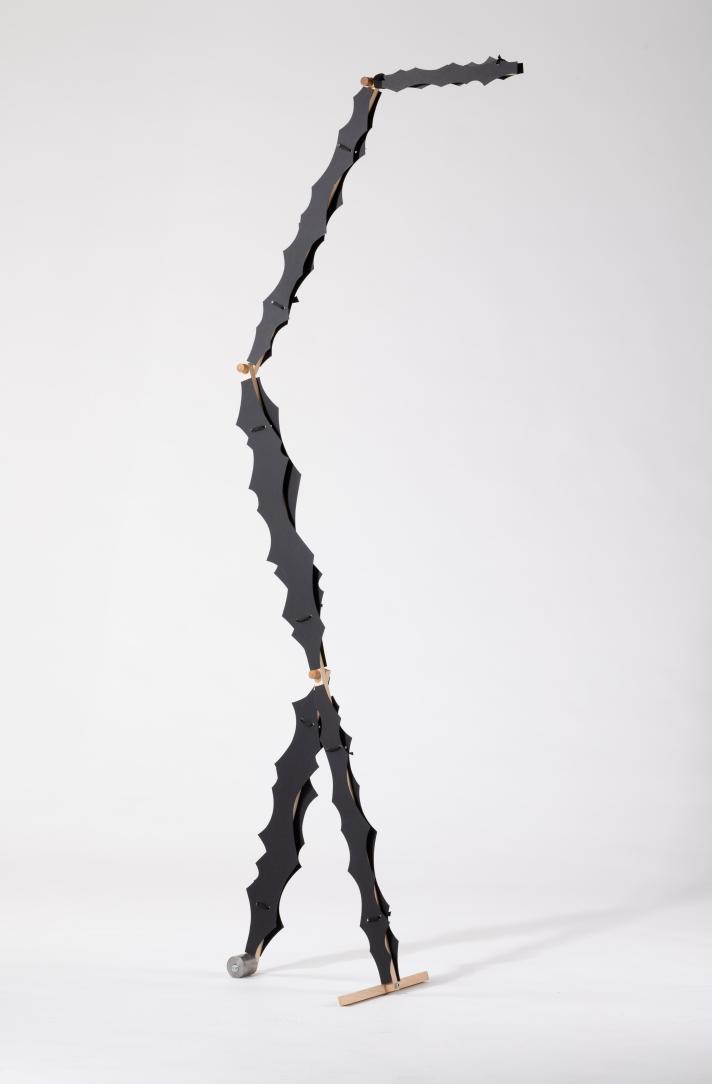
Walkingstick is a furniture platform based on a system of interchangeable hardwood dowels and boards. Such a simple, highly modular system of ready-to-assemble (RTA) furniture functions as a scaffolding for a series of versatile add-ons made out of mostly recycled materials. A playful, participatory design offers the user multiple ways to customize and adjust the shape and character of the furniture.
Inspired by the constructivist design of the early 20th century and particularly Enzo Mari's Autoprogettazione DIY furniture from the 1960s, our idea is to offer furniture that's simple, sustainable, and rooted in a local community. The idea was first formed as an art project. Later, in collaboration with a fabrication workshop, it developed into three series of tested prototypes.
The aesthetic aspect of the furniture still occupies the central part of the project; however, we see the project from a much broader perspective. In the future, we imagine it as a platform where designs of furniture pieces are ultimately open-sourced or even designed by the community of users who, in turn, receive royalties from the sales. Our most important goal is to establish a delicate value chain that makes such a collaborative design endeavor possible.
There is always an interchangeable, minimal structural skeleton at the core of our concept, made out of fastened wooden dowels and boards, which gains playfulness and specificity in the next step with the addition of add-on elements. As the wooden structural skeleton forms a rational, tectonic part, the add-ons are emotive, ornamental parts. Sometimes add-ons can be as simple as DIY folded office paper lampshade. In the other case, as complex as decorative covers elaborately fabricated from CNC cut anodized aluminum. We imagine the future add-ons to be made and even sold on a marketplace by a community of users. We believe that such a concept offers an endless range of possibilities, gives furniture a wide aesthetic character, and prolongs the lifespan of a product.
Modularity and interchangeability are essential for the product's reuse. According to European Federation of Furniture Manufacturers (UEA) statistics, furniture waste in the EU accounts for more than 4% of the total municipal solid waste (MSW) stream. 80% to 90% of the EU furniture waste in MSW is incinerated or sent to landfills, with only ~10% recycled.
Rather than encourage consumers to buy new furniture to suit their changing needs, we encourage them to modify their existing highly modifiable Walkingstick furniture. Such circular economy principles mean that parts have an almost unlimited lifespan and can be recombined, exchanged, or reused according to changing tastes and fashion.
We use only local, sustainably sourced hardwood. Slovenian State Forestry Management (Slovenski Državni Gozdovi - SiDG) has FSC® as well as PEFC certification—overall 260.000 hectares of Slovenian forest hold FCS certification and track products from the forest to the shelf. All FSC products are verified by third-party Certification Bodies to meet FSC's rigorous requirements through the FSC Forest Management (FM) and Chain of Custody (CoC) certification systems. Using tracked and sustainably sourced lumber would enable us to assign our products certificate of origin. We believe this is crucial to increase awareness and the importance of prudent local forest management and conservation practices.
- Project locations
- SloveniaBelgium
- Projects Edition
- WORTH Partnership Projects II
- Project Call
- 1st Call Projects
- Project Sector
- Furniture, home decoration, interior design and architecture
- Project Challenge
- New European Bauhaus
Stakeholders
Coordinators
STRID
- Address
- Slovenia
LUUSE
- Address
- Belgium




